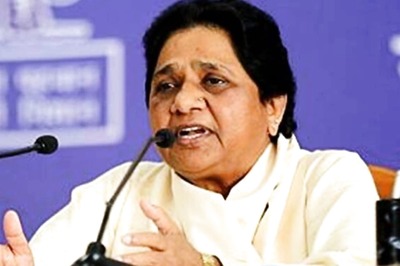
views
MINNEAPOLIS: The judge overseeing the trial of a former suburban police officer who is charged in the death of Daunte Wright has denied a request to broadcast the proceedings, saying in a ruling Thursday that the public and media will have ample space to view the trial in the courtroom or in designated overflow rooms.
Former Brooklyn Center officer Kim Potter, who is white, fatally shot Wright, a 20-year-old Black motorist, on April 11. The citys former police chief said he believed Potter meant to use her Taser instead of her handgun. Shes charged with second-degree manslaughter.
On Thursday, Judge Regina Chu ruled that there will be no recording or livestreaming of the trial. She also moved up the start date by about a week, to Nov. 30.
Under Minnesota law, a defendant has a right to a public trial, but that is designed to benefit the defendant, not the public, Chu wrote. The public and media also have a right to access, but under Minnesota court rules, audio and video coverage of a criminal trial is barred unless all parties consent. Coverage of sentencings is allowed without consent, unless the judge finds cause to prohibit it.
Chu wrote that in Potter’s case, the defendant didn’t consent to her trial being broadcast.
The recent trial of Derek Chauvin, the former Minneapolis officer convicted of murder in the death of George Floyd, was broadcast and livestreamed. But in that case, Chu noted, the circumstances were different: The state objected to audio-visual coverage while the defense did not, and at the time, Judge Peter Cahill was trying to balance Chauvin’s right to a public trial and the public’s right to access with the unknowns of the coronavirus pandemic and social distancing restrictions. Chauvin’s trial also generated intense public and media interest and posed security concerns, Chu said.
Chu said Potter’s case does not present the same extraordinary circumstances. She said COVID-19 restrictions have been relaxed, and the court does not anticipate closing the courtroom for security purposes. She also said the court has authorized the use of multiple overflow rooms to accommodate spectators.
Chauvin’s trial was Minnesota’s first criminal case in which gavel-to-gavel coverage was allowed. Afterward, Minnesota Supreme Court Chief Justice Lorie Gildea said it’s time to consider whether the current rules barring audio and video coverage of criminal proceedings should be amended.
Gildea ordered the high courts Advisory Committee on the Rules of Criminal Procedure which is made up of judges, prosecutors, and defense attorneys to study the matter and report back with recommendations by July 1, 2022.
__
Find APs full coverage of the death of Daunte Wright: https://apnews.com/hub/death-of-daunte-wright
Disclaimer: This post has been auto-published from an agency feed without any modifications to the text and has not been reviewed by an editor
Read all the Latest News, Breaking News and Coronavirus News here.


















Comments
0 comment